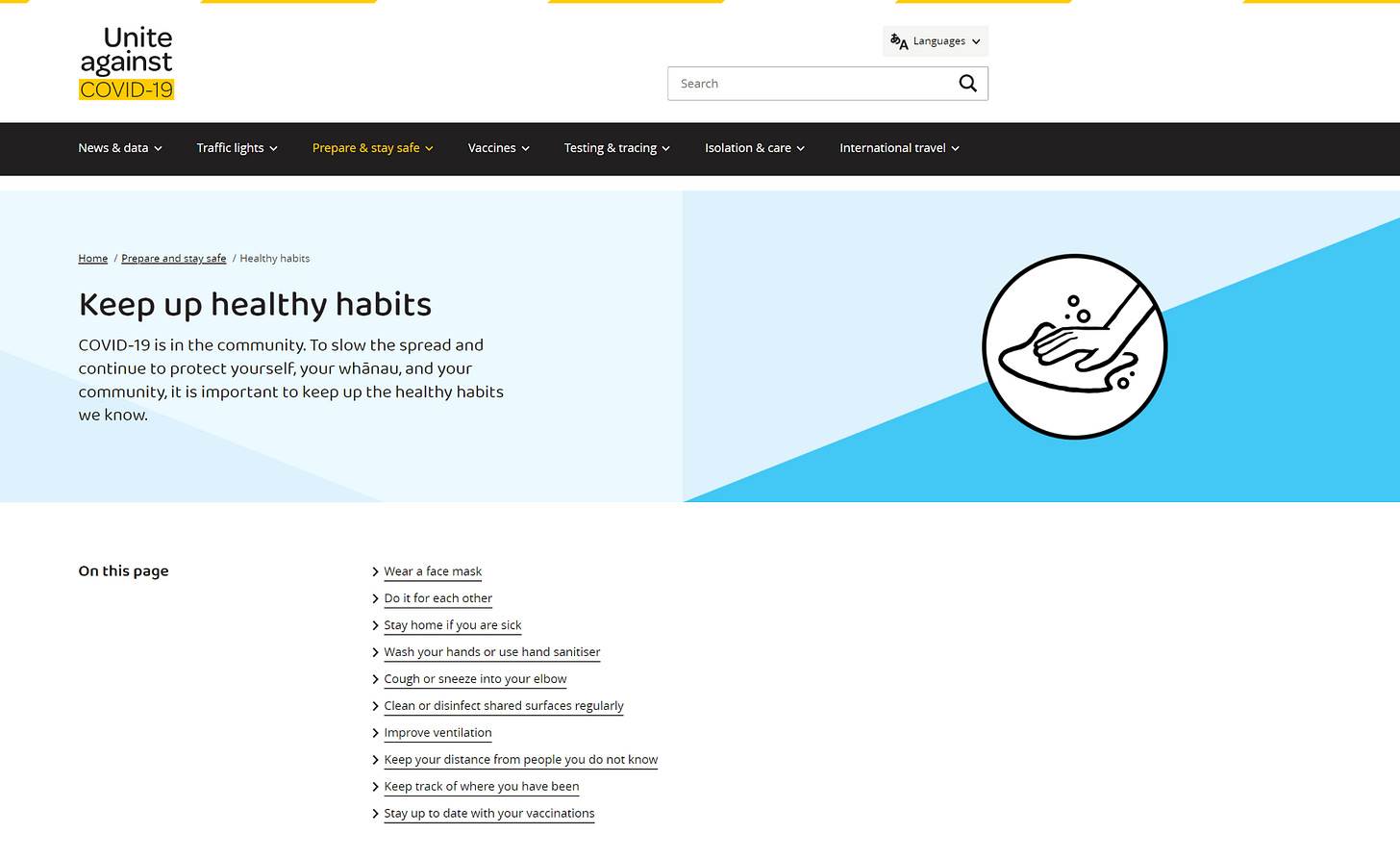Emergency Powers: [9] The Social Construction of Knowledge & Ignorance
From my April 2022 paper COVID-19 Emergency Powers: The New Zealand State, Medical Capture & the Role of Strategic Ignorance
Knowledge – as information - and ignorance, shapes what we now know and can act upon. The absence of discussion of infection fatality rates stratified by age, and the promotion of case numbers, demonstrates how information was weaponised to nudge the public in a particular direction, and accept a medical intervention from a treatment that had only 2 months of clinical trial data, instead of 10 to 15 years of data.
We often believe ignorance is the result of not doing something. Those who are ignorant are this way due to a choice, or absence of knowledge.
Yet of course, ignorance and knowledge are tied to capabilities and access to resources. This is no different for science. The production of science is highly social, and the authority to determine what science is included in debate is strategically important and a direct function of the power of stakeholders.
Sociological studies of ignorance recognise that knowledge is socially constructed and that ignorance can arise as strategically produced non-knowledge. Knowledge and ignorance is associated with historic access to resources and closely tied to institutional power. How risk is communicated and understood produces specific cultures that have ways of knowing and understanding – in public life and in scientific, academic and political communities.
As has been discussed, institutionalised drivers in science policy (which is closely associated with tertiary education institutions) favour innovation-based medicalised cultures. Institutional research directed to the production of medical technologies and medicine, produces institutional and cultural blind spots, as ignorance makes it difficult to produce health protective policy and there is no institutional ‘space’ for robust research and science.
Therefore in New Zealand in 2022, we have disease-based medical policy, and a disease-based medical system. It is apparent that the Ministry of Health is now predominantly a Ministry of Medicine.
Medicine and medical technologies should form a subset of national health policy, rather than drive it.
It should have been expected, that very few authoritative experts were available to challenge the governments genetic vaccine narrative – the state has simply not created a safe space for researchers and scientists to challenge the power of medicalised narratives.
Medical training focuses on medicine. Western doctors have been educated in such a way that prioritises symptom detection and disease-based medical treatment. Much of their work involves drug management for patients with multiple conditions. It is normally assumed that neither metabolic conditions, nor mental illness, can be reversed. The culture of medicine is instead management of disease, and medicine has become more prescriptive. Yet how can health be protected if disease states, such as obesity, produce illness cascades, increasing vulnerability for depression, cancer, heart disease and death from COVID-19?
In New Zealand multimorbidity is the norm rather than a single disease state. Yet there are no tiny little fences compartmentalising each separate organ in the human body.

The absence of block funding and hypercompetitive funding environments have made the choices of funding committees far more conservative, and this favours single disease-focussed, applied science. Panel members themselves, have navigated health-funding cultures which prioritise driving funding to scientific discovery which is likely to lead to innovations such as medical treatments or equipment. In this environment. deviant scientists who might seek to explore the drivers of disease, or adverse effects of a medical drug, will almost certainly remain unfunded. Funding is precarious, and internationally funding has been used to pressure scientists to obfuscate the Sars-Cov-2 lab leak hypothesis and deny ivermectin as a safe, antiviral treatment to prevent adverse outcomes in COVID-19.
It’s been harder to occupy a critical role in the tertiary education system. For over 3 decades New Zealand universities have prioritised investment in the science, technology, engineering and mathematics (STEM) disciplines, while the Arts – where critical enquiry normally would reside, where the philosophers, the ethicists, the sociologists draw attention to hypocrisy, power and tyranny – have been systematically disenfranchised. For the economy-driven nation-state, the Arts does not promise the ‘return’ on investment the STEM disciplines promise.
For decades, the public health profession has pivoted to medical rather than social or political solutions.
Today in New Zealand, health system indicators are predominantly tied to immunisation rates and access to medical care rather than prevention of metabolic disease or mental illness.
This directly depoliticises the traditional (and political) drivers of chronic disease and mental illness: poverty, stress and access to an optimum nutrition-based diet (and here).
Review of how policy works, of the decision-making processes and institutional structures and cultures can help explain why New Zealand’s high-level health system indicators do not emphasise primordial disease prevention (the prevention of a disease state). Instead, the system is devoted to primary prevention (such as detection and medical care); and the medical management of multiple disease states.
References are available on the original PDF at TalkingRisk.NZ



